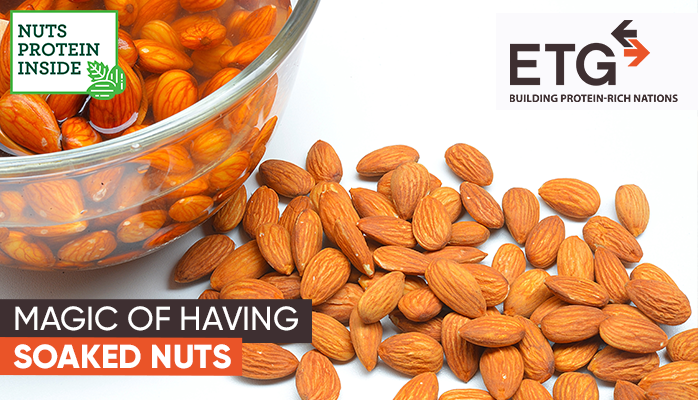Nuts, seeds, and grains contain inhibitors to protect them and prevent germination until the conditions are perfect. However, when these foods are ingested, these enzyme inhibitors compromise our digestion and health. Soaking them neutralizes these anti-nutrients and enzyme inhibitors to make them more digestible. As a rule - the harder the nut, the longer the soak. Let us look at soaking helps us –
1. Improves digestion: Soaking raw nuts in warm acidulated or salted water simulates the ideal moist germinating conditions these foods wait for in nature, essentially tricking the food into sprouting, which neutralizes enzyme inhibitors.
2. Unlocks nutrients: Soaking activates the full nutrient potential of the food. The potency of vitamins like A, C, and B gets a boost, proteins become more available, and live enzymes are released.
3. Improved flavor and texture: Soaking soften food, making it easier to blend. Hydrated nuts, seeds, and dried fruits liquefy more completely, even in high-speed machines. The silky, creamy consistency you get by soaking nuts before blending into soups and smoothies is not achievable with unsoaked nuts.
4. Reduces prep and cook times: Soaking hard and fibrous foods such as nuts for smoothies, soups, dips, and sauces results in creamier consistencies, particularly with conventional blenders.
Now let us talk about the time required for soaking each category of Nuts -
Long-soak nuts (almonds, pistachios, and hazelnuts) need at least 8 hours.
Medium-soak nuts (pecans, walnuts, and Brazil nuts) are oilier and swell up quickly, so require less soaking time.
Short-soak nuts (cashews, macadamias, and pine nuts) have the highest fat content and require only 2 to 4 hours of soaking. Do not soak these nuts for longer than 4 hours. Soaking them for extended periods breaks down their health-promoting oils.
Ananya Bhattacharya
Food Nutritionist


